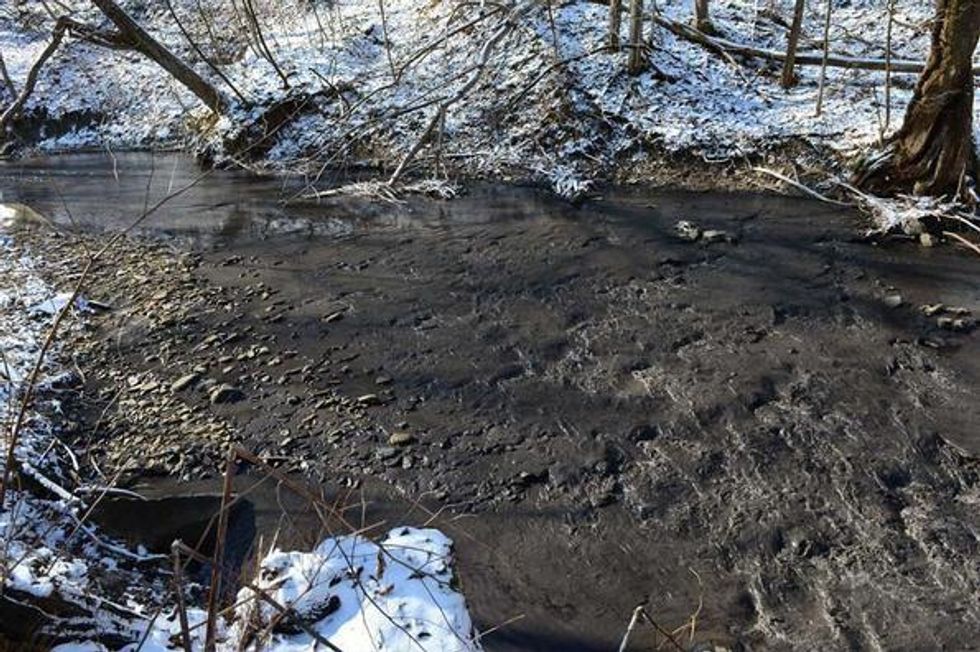Waters are running black for roughly six miles in West Virginia's Fields Creek after more than 100,000 gallons of toxic
coal slurry poured into the waterway from a Patriot Coal processing facility Tuesday.
"This is a big deal, this is a significant slurry spill," said Secretary Randy Huffman of the state's Department of Environmental Protection at a news conference Tuesday evening. "When this much coal slurry goes into the stream, it wipes the stream out."
The spill comes just one month after the Elk River disaster, when 10,000 gallons of coal cleaning detergent Crude MCHM leaked into the river, contaminating the water supply for millions of residents living in and around the capital, Charleston.
Emergency officials said Tuesday that a "smaller amount of the slurry" had already traveled from the creek to the Kanawha River near the town of Chesapeake, West Virginia. Chesapeake is situated roughly 13 miles south along the Kanawha River from Charleston.
"This has had significant, adverse environmental impact to Fields Creek and an unknown amount of impact to the Kanawha River," Huffman said of Tuesday's spill which occurred at Patriot Coal's Kanawha Eagle operation.
The spill was reportedly caused by a malfunction of a valve inside the slurry line. And although the valve broke sometime between 2:30 and 5:30 Tuesday morning, Patriot Coal did not call the DEP to alert them of the leak until 7:40 Tuesday morning, the Charleston Gazette quoted Huffman as saying.
There are some conflicting reports as to whether the slurry contains Crude MCHM or another chemical, polyethylene glycol. Regardless, the Gazette reports, the slurry contains a variety of substances and heavy metals such as iron, manganese, aluminum, and selenium that "are likely more toxic" than either Crude MCHM or polyethylene glycol.
Noting the irony of the spill coming on the heels of the Elk River disaster, many reacted online:
Unlike the Elk River spill, which occurred a mile and a half upstream from the intake pipes for regional water utility West Virginia American Water, there are no water intakes directly downstream from where the spill took place. Officials with the utility issued a statement Tuesday saying the latest spill will not impact their regional drinking water plant in Charleston.
The Charleston Gazette continues:
This is at least the third incident...since 2010 at the Kanawha Eagle cite. In late November, black water was discharged into South Hollow Stream, and ended up in Fields Creek. The company was fined $663.
In October of 2010, there was a slurry line break that discharged into Spicelick and Joes Creek, impacting about 3 miles of stream. The company was fined $22,400.
* * *
Observers noted that the spill was the one of three fossil fuel related disasters to occur within a 24 hour period, in addition to a Pennsylvania fracking well explosion and a natural gas pipeline explosion and fire in North Dakota.
_____________________




